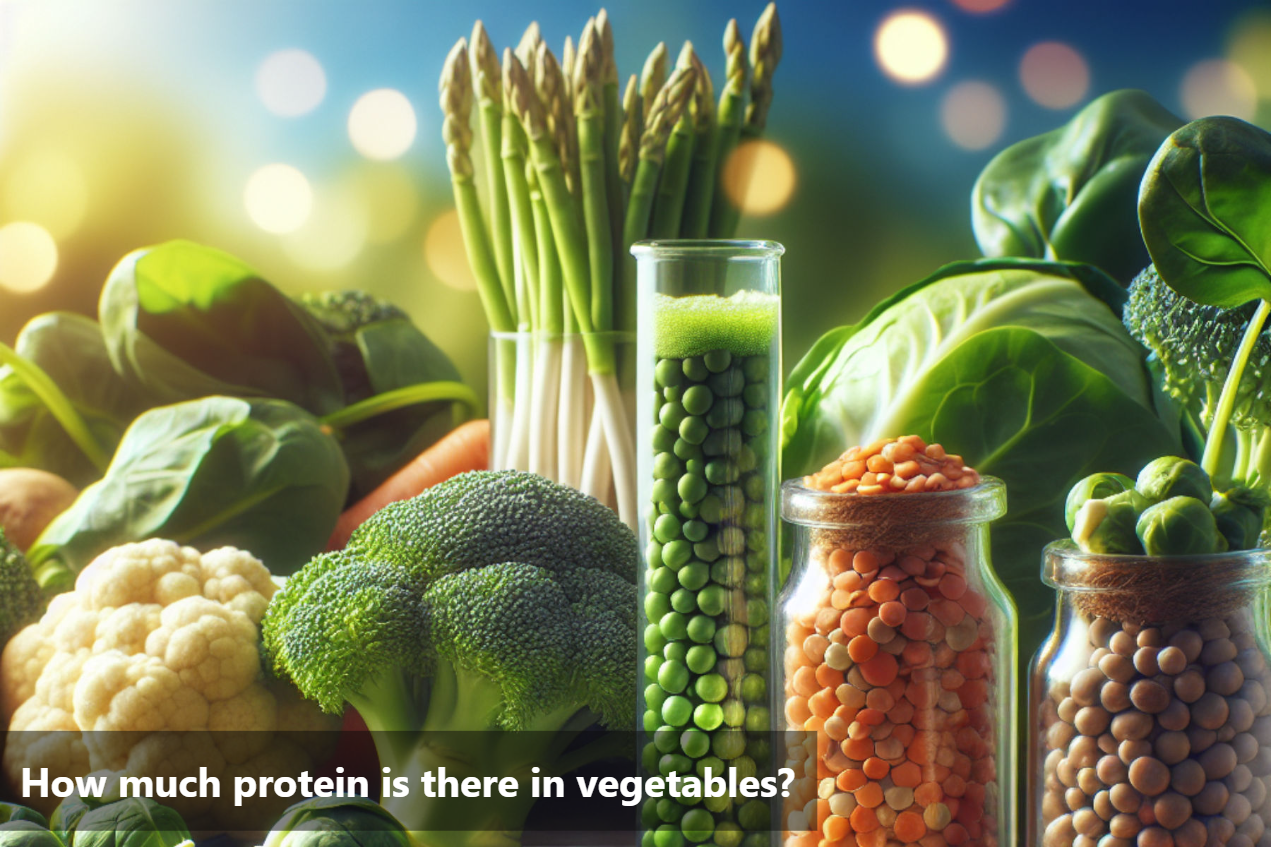
How much protein is there in vegetables?
While the common belief often associates protein with animal products, there is a growing awareness of the abundance of plant-based protein sources available. Incorporating these vegetable-based proteins into our diets can offer numerous benefits, including improved digestion, weight management, and enhanced muscle health.
Contrary to popular belief, vegetables can be a rich source of protein, offering a variety of essential amino acids necessary for bodily functions. Leafy greens like spinach and kale, legumes such as lentils and chickpeas, and vegetables like broccoli and peas are examples of nutrient-dense options that can significantly contribute to our daily protein requirements. Understanding the quality and quantity of protein in vegetables is key to optimizing our nutrition and overall health.

Protein Content in Vegetables
Vegetable |
Protein (g per 100g) |
|---|---|
Spinach |
2.9 |
Kale |
4.3 |
Broccoli |
2.8 |
Brussels sprouts |
3.4 |
Green peas |
5.4 |
Cauliflower |
1.9 |
Lentils (cooked) |
9.0 |
Chickpeas (cooked) |
8.2 |
Potatoes |
2.0 |
Carrots |
0.9 |
Health Benefits
Muscle Growth and Repair: Protein is essential for the growth, repair, and maintenance of muscle tissues.
Satiety and Weight Management: Protein helps in feeling fuller for longer periods, which can aid in weight management by reducing overall calorie intake.
Nutrient Density: Protein-rich vegetables often come with a variety of other essential nutrients, including vitamins, minerals, and fiber.
Heart Health: Many protein-rich vegetables are also high in fiber and antioxidants, contributing to better cardiovascular health.
Blood Sugar Regulation: Protein helps in stabilizing blood sugar levels, which is beneficial for managing and preventing diabetes.
Incorporating Vegetables into a High-Protein Diet
To incorporate protein-rich vegetables into a high-protein diet, one can explore a variety of creative and delicious options. Adding vegetables not only boosts the protein content but also enhances the overall nutritional value of the diet. Here are some practical tips and ideas to make this dietary adjustment easier:
Begin with a Strong Base: Start your day with a protein-packed vegetable smoothie using ingredients like spinach, kale, almond milk, and a scoop of plant-based protein powder.
Power-Packed Salads: Create hearty salads with a mix of leafy greens, cherry tomatoes, cucumbers, chickpeas, and grilled vegetables topped with a protein-rich dressing like tahini or Greek yogurt.
Veggie Stir-Fry: Whip up a colorful veggie stir-fry with tofu, broccoli, bell peppers, and snap peas seasoned with soy sauce and garlic for a plant-based protein boost.
Grilled Veggie Skewers: Prepare vegetable skewers with protein-rich veggies like mushrooms, zucchini, cherry tomatoes, and bell peppers marinated in a balsamic vinaigrette for a flavorful twist.
-
Protein-Packed Soup: Enjoy a warm bowl of lentil or split pea soup loaded with vegetables like carrots, celery, and spinach for a comforting and protein-rich meal.
Incorporating protein-rich vegetables into your diet not only diversifies your protein sources but also provides essential nutrients and fiber for overall well-being. Experiment with different recipes and meal ideas to create a balanced and wholesome high-protein diet.

Vegetable Protein: How Much is in Your Greens?
It is evident that vegetables are a valuable source of protein that should not be overlooked in a balanced diet. The protein content in vegetables, as highlighted throughout this blog, showcases the diverse range of plant-based protein sources available to us. By incorporating protein-rich vegetables like spinach, broccoli, peas, and edamame into our meals, we can enhance our protein intake in a delicious and nutritious way.
It is crucial to recognize the significance of including a variety of plant-based protein sources in our daily meals. Not only does this promote a more sustainable and environmentally friendly approach to eating, but it also offers numerous health benefits. By prioritizing vegetables in our diet, we can support our overall well-being while enjoying the flavors and benefits that come with a plant-centric culinary experience. Remember, a balanced diet rich in plant-based proteins can truly make a difference in our health and the health of our planet.
FAQs
-
Which vegetables are high in protein?
Some of the vegetables that are high in protein include spinach, broccoli, peas, edamame, and Brussels sprouts.
-
How much protein do vegetables typically contain?
On average, vegetables contain about 2-3 grams of protein per serving, but certain varieties like beans and legumes can provide higher protein content.
-
Is plant-based protein from vegetables enough for a balanced diet?
Yes, plant-based protein from vegetables can contribute significantly to a balanced diet, especially when combined with other protein sources like legumes, nuts, and whole grains.
-
Are all proteins in vegetables complete proteins?
No, most proteins in vegetables are incomplete proteins, meaning they lack one or more essential amino acids. However, by combining different plant-based protein sources, you can create a complete protein profile.
-
How can I increase my protein intake from vegetables?
To boost your protein intake from vegetables, try incorporating a variety of protein-rich veggies into your meals, such as tofu, lentils, chickpeas, and quinoa. Additionally, consider adding seeds like chia or hemp seeds for an extra protein punch.
This Blog post is an initiative by Lo! Foods, to provide accurate and Nutritionist / Doctor approved information related to Health. Lo! Foods is India's leading brand for Everyday Functional Foods. Foods designed for specific Health conditions or Needs. Lo! Foods also runs India's largest range of Low Carb Healthy Cloud Kitchens, under the brand names of Lo!, ProteinChef, ATH (All Things Healthy) and DiabeSmart.















Leave a comment
Your email address will not be published.